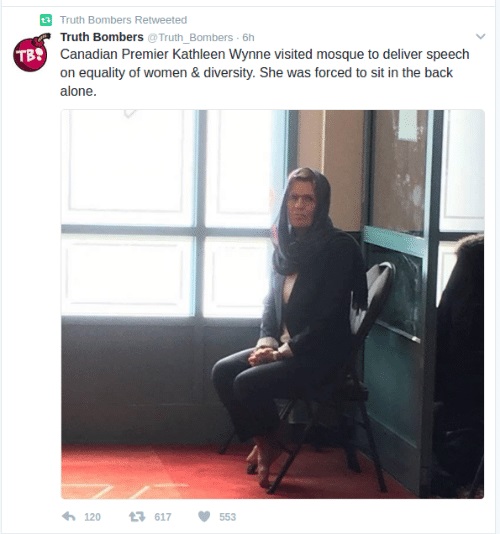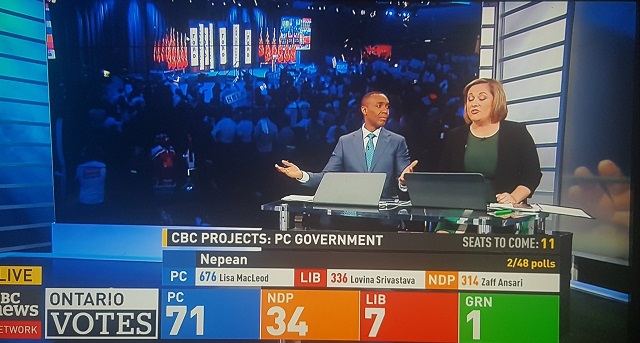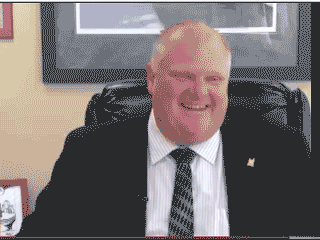Trudeau's Liberals Get Destroyed by Conservatives In Ontario Election, Lose Official Party StatusChris MenahanInformationLiberation Jun. 08, 2018 |
Popular 
Rabbi Tells Senate Hearing It's 'Not Enough' to Be 'Not Anti-Semitic' - 'One Must Be Anti-Anti-Semitic'

Randy Fine Wins Florida House Race After Trump, GOP Scrambled to Prop Up His Campaign

Trump's 'Liberation Day' Includes Slapping 17% Tariff on Israel

Sen. Schumer: 'My Job is to Keep the Left Pro-Israel'

Trump Threatens War With Iran If No Nuclear Deal: 'There Will Be Bombing' Like They've 'Never Seen'
  Doug Ford -- brother of the late, great Toronto mayor Rob Ford -- is set to replace far-left openly gay liberal Kathleen Wynne to become the next Premier of Ontario. Doug Ford -- brother of the late, great Toronto mayor Rob Ford -- is set to replace far-left openly gay liberal Kathleen Wynne to become the next Premier of Ontario.You may remember Wynne from the viral photo last year where she was pictured being forced to sit in a corner while visiting a Mosque in Ontario to speak about tolerance and diversity.  Wynne was Canada's first openly gay head of government and the first female Premier of Ontario. You'll no doubt be shocked to learn she ran the province into the ground.  From BBC: Doug Ford, the brother of troubled former Toronto mayor Rob Ford, is on course to be elected the premier of Canada's most populous province. Mr Ford is known for his plain-speaking style and attacks on media and the elites - whom he once described as "drinking champagne with their pinkies in the air".He was a truly great man.  No doubt he's smiling down on us all from heaven. He won the mayoral election in 2010 with votes from the so-called "Ford Nation" - a political movement of mainly suburban voters around Toronto that formed the core of his support.This was quite possibly the worst loss in history for the Liberals. From Global News: While Kathleen Wynne was re-elected in her own riding of Don Valley West, the Liberals fell just shy of the eight seats needed to maintain official party status in the province of Ontario, with MPs elected in just seven ridings."Life is always complicated," Wynne told supporters in Toronto after resigning on Thursday. Here's more of the specifics of Ford's platform from Bloomberg: The Conservatives are promising to balance the budget over a “responsible time-frame” even as they pledge to cut taxes and increase spending on health care and infrastructure. Ontario’s debt has ballooned under the Liberal Party, soaring to 37 percent of gross domestic product, from about 27 percent when they took power in 2003. Ontario, home to some of Canada’s biggest companies and its financial services hub, is the largest sub-sovereign borrower in the world.Globalists are being destroyed on all fronts! Follow InformationLiberation on Twitter, Facebook and Gab. |



